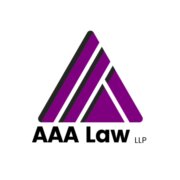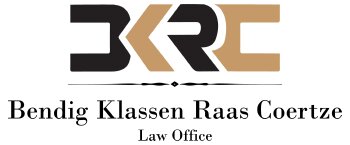Best Native People Lawyers in Canada
Share your needs with us, get contacted by law firms.
Free. Takes 2 min.
Or refine your search by selecting a city:
List of the best lawyers in Canada
About Native People Law in Canada
Native People in Canada, often referred to as Indigenous Peoples, include First Nations, Inuit, and Métis communities. These groups have distinct cultures, languages, and traditions. The legal landscape regarding Indigenous Peoples in Canada is complex due to historical treaties, comprehensive land claims agreements, and self-government arrangements. The Canadian Constitution Act, 1982, notably Section 35, recognizes and affirms the existing Aboriginal and treaty rights of the Indigenous Peoples, establishing a crucial legal foundation for addressing issues related to governance, land claims, and cultural protection.
Why You May Need a Lawyer
There are numerous situations where individuals or communities may require legal assistance related to Indigenous law in Canada:
- Disputes over land claims or title rights which require in-depth legal knowledge of treaties and agreements.
- Negotiations for resource development on traditional lands needing advocacy to ensure fair benefits and sustainable practices.
- Inequities in the enforcement of Indigenous rights, requiring legal challenges against policies or practices.
- Matters of self-governance, including drafting or interpreting codes, by-laws or constitutions.
- Criminal defense cases where cultural rights and contexts may need special consideration.
- Human rights issues, including discrimination or access to services.
- Family law matters, often involving issues of child protection where Indigenous laws and customs are significant.
Local Laws Overview
Indigenous law in Canada includes a multitude of laws that vary by province and region due to the distinct needs and agreements of different Indigenous communities. Key aspects include:
- The Indian Act, governing various aspects of life on reserves and the relationship between the Canadian government and First Nations.
- Treaties and land claims agreements that are legally binding and outline rights and responsibilities.
- Provincial laws impacting land use, environmental conservation, and resource extraction that interact with Indigenous rights.
- Self-government agreements that delineate powers over local decision-making, education, health, and other areas.
Frequently Asked Questions
What is the significance of Section 35 of the Constitution Act, 1982?
Section 35 recognizes and affirms the existing Aboriginal and treaty rights of Indigenous Peoples, providing a legal foundation for their protection and further advancement.
What is the Indian Act?
The Indian Act is a Canadian federal law that addresses various aspects of life for First Nations. It governs the administration of reserves, status, and land, though it is often criticized for being paternalistic.
How does Canada recognize Indigenous self-government?
The Canadian government acknowledges Indigenous self-government through agreements that allow communities to make decisions in areas such as governance, education, and resource management.
What are modern treaties?
Modern treaties, or comprehensive land claims agreements, settle Indigenous land claims and often include self-governance provisions, economic development, and more.
Are Indigenous laws recognized in Canadian courts?
Yes, Canadian courts recognize Indigenous laws and customs, especially in matters where they impact the rights and lives of Indigenous Peoples.
What are the options if an Indigenous community disputes a resource development project?
Communities can engage in negotiations, environmental assessments, and may use legal challenges if projects do not respect treaties or agreements.
How does the Truth and Reconciliation Commission impact legal matters?
The TRC's calls to action influence legal reforms, policy developments, and public awareness in areas affecting Indigenous rights and justice.
What role do Indigenous organizations play in legal matters?
Organizations often provide advocacy, support, and can be engaged in legal proceedings or negotiations on behalf of communities.
Can Indigenous people access legal aid?
Yes, Indigenous Peoples may access legal aid, particularly for issues where their rights are directly affected, although availability can vary by region.
What is UNDRIP and its relevance in Canada?
UNDRIP, the United Nations Declaration on the Rights of Indigenous Peoples, sets out rights and standards for the treatment of Indigenous Peoples and has been endorsed by Canada.
Additional Resources
Here are some resources and organizations that can provide valuable assistance:
- Indigenous Services Canada
- Assembly of First Nations
- Métis National Council
- Inuit Tapiriit Kanatami
- Federation of Sovereign Indigenous Nations
- Legal Aid services specific to Indigenous communities
- The Indigenous Bar Association
Next Steps
If you need legal assistance regarding Indigenous matters in Canada:
- Identify the specific legal issue or area of concern, such as land claims, governance, or human rights.
- Reach out to a lawyer specializing in Indigenous law for initial consultation and guidance.
- Consider accessing Indigenous legal aid or community legal clinics that understand the nuances of Indigenous rights and laws.
- Contact Indigenous organizations that can offer advice, support, or direct you to additional resources.
- Engage with governmental or local bodies that have responsibilities towards Indigenous affairs for policy clarification or enforcement.
Lawzana helps you find the best lawyers and law firms in Canada through a curated and pre-screened list of qualified legal professionals. Our platform offers rankings and detailed profiles of attorneys and law firms, allowing you to compare based on practice areas, including Native People, experience, and client feedback.
Each profile includes a description of the firm's areas of practice, client reviews, team members and partners, year of establishment, spoken languages, office locations, contact information, social media presence, and any published articles or resources. Most firms on our platform speak English and are experienced in both local and international legal matters.
Get a quote from top-rated law firms in Canada — quickly, securely, and without unnecessary hassle.
Disclaimer:
The information provided on this page is for general informational purposes only and does not constitute legal advice. While we strive to ensure the accuracy and relevance of the content, legal information may change over time, and interpretations of the law can vary. You should always consult with a qualified legal professional for advice specific to your situation.
We disclaim all liability for actions taken or not taken based on the content of this page. If you believe any information is incorrect or outdated, please contact us, and we will review and update it where appropriate.
Browse native people law firms by city in Canada
Refine your search by selecting a city.















